After Two Weeks, Half of Sicily is Under Allied Control
Lionel Shapiro of The Montreal Gazette Gets Rolling Too!
Ross Munro and Bill Stewart of the Canadian Press with Lionel Shapiro
(right) in France, August 1944 (Library and Archives Canada) Source
Introduction:
Was it in the last entry I wondered aloud where Canadian war correspondent Lionel Shapiro had landed and set up his typewriter? From reading his excellent book, "They Left The Back Door Open", about his time in Sicily during Operation Husky, and scanning microfilm re The Gazette about the same time period, I knew he was active and submitting many articles. Did he get lost? Did his news columns get lost?
July, 1943, are found in "They Left The Back Door Open"
No. He's fine. Not lost, perhaps merely delayed. And if today's paper is any indication, we will be hearing from him regularly from now onward.
And now for today's news:
Please note first sentence in the caption above re "half of the island"
As well, please note that Shapiro's account that follows was 'Delayed' by one full week. Exactly what would cause the one week gap is not known:
Readers can read a few passages from Lionel Shapiro's aforementioned book here - Passages: They Left the Back Door Open (Part 1). Click here for a link to Part 2.
Sherman tank of the Three Rivers Regiment in Sicily, 19 July 1943.
Source for Photo: Library and Archives Canada LAC PA 166755
Shapiro's account continues:
Readers can learn more about Lionel B. Shapiro and his WWII experiences here - Lionel Shapiro needed a decade to find perspective on his D-Day experience by Marc Lancaster.
What follows is an up-to-date summary of Allied progress in Sicily:
Below: "Canadians were operating somewhere north of Enna, key road
junction" (see inside the red circle). Source: Beyond the Consensus
Map drawn by Mike Bechthold c 2010
Lightning Onset continues:
An article follows re "the first combined operation (by navy and R.A.F.) against the Fascist mainland":
Operation BAYTOWN, the Allied invasion of Italy at Reggio - on the toe
of the boot - began on September 3, 1943 with Canadians in Combined
transporting Canadian troops for the 1st time. Map Source: Wikipedia.
Royal Navy, R.A.F. Hit Crotone continues:
A summary of Allied action on various war fronts, including Russia, Sicily and Italy, follows:
Due to Allied progress in Sicily (and Russia no doubt), Nazi Germany is changing its strategy:
More Information re Peter Stursberg here at Wikipedia
An oft-used/shared photo appears (again!) below with Peter Stursberg catching a ride with well-known Canadian War Correspondent Ross Munro:
Editorial cartoon follows from The Gazette:
A "terrific trio" of Canadian War Correspondents:
I located a better copy of the above photo. See near bottom of the entry
I also had some luck finding a couple of good photos re Lionel S. B. Shapiro, correspondent with The Montreal Gazette:
Talking to war correspondents at Amblie, - Major-General Stanislaw Maczek,
commander of 1st Polish Armoured Division, and his staff talking to war cor-
respondents at Amblie, Normandy, 7 August 1944. From left to right: Lionel S. B.
Shapiro, North American Newspaper Alliance; Ralph Allen, Globe & Mail; & J. A. M.
Cook, Winnipeg Free Press; Captain T. A. Wysocki, Colonel K. Dworak and Maczek.
Image titleWORLD WAR II: ITALY, 1943 General Sir Harold Alexander*
(center), commander of Allied ground forces in Italy, and Lieutenant General Mark
Clark, U. S. Fifth Army Commander look with uncertainty at an approaching plane
who's markings are not distinguishable, near the front line in Salerno, Italy. A war
correspondent (i.e., Lionel Shapiro) for the Montreal Gazette is at left, 1943.
Photo credit: Granger / Bridgeman Images. Image no. GCL3410610
*Coincidentally, concerning General Alexander.... he gives praise to Canadian troops in Sicily in the article that immediately follows the one below.
A bit of interesting background information re Canadian troops in Sicily follows:
My father, RCNVR/Combined Operations, was aboard one of the slowest vessels - if not the slowest vessel - as it journeyed around the African continent in May and June 1943 on its way to Alexandria, then Sicily. The ship, SS Silver Walnut, was considered 'sub-bait' by some, and my father was happy not to see any during the lengthy trip, which included frequent stops for repairs to the ship's engines. More details here.
"Canadians Arrive in Sicily in Storm' continues:
We read below that Canadian troops participated in 'beach assaults and combined operations' likely for for more reasons than the one listed, i.e., "accustoming the troops to bad weather conditions." Troops needed to learn how to enter and exit a small landing craft efficiently, safely; they needed to grow accustomed to causes and effects of - and how to handle - seasickness. Travelling miles upon miles on large troop ships is one thing, clambering onto and then travelling to shore upon a small craft is something else.
About early training aboard landing crafts at No. 1 Combined Operations Training Camp HMS Quebec (on Loch Fyne, Scotland, about 2 miles south of Inveraray), my father wrote the following:
at Inveraray Castle. Now closed to visitors (because I have the sign?) GH

Troops train on landing craft at Loch Fyne, south of Inveraray
Scotland, 1942. Photo credit - Imperial War Museum (IWM)
ALCs carried soldiers and LCMs carried soldiers or a truck, a Bren gun carrier, supplies, land mines, gasoline, etc. ALCs were made of 3/16th inch plating, thick enough to stop a .303. LCMs wouldn’t stop a bullet. ALCs sat three rows of soldiers including two outside rows under 3/16th inch cowling, but the center row was completely exposed.
Troops of 1st Canadian Scottish practice loading into LCA (IWM)
[Note the cowling above soldiers' heads. My father would crawl above the
troops and pass his helmet to soldiers who started to vomit. Many did.]
We had an officer named Jake Koyl who was later to become our commander after Lieut. McRae was captured at Dieppe. During the exercise the soldiers became sick, oh so terribly sick. (From Ch. 3, "Dad, Well Done", my father's Navy memoirs)
Maybe used for more than a few 'brew ups' GH
"Canadians Arrive in Sicily in Storm' continues:
Canadians in the RCAF make news as well:
With L. Shapiro writing down every word, Gen. H. Alexander and Lt. Gen. Mark
Clark spot an unidentified plane near Salerno, Italy. Clark reaches for his gun.
“I bet I can wing that stupid beggar from here,” he says.
Infantry of the PPCLI patrol down the main street of Agira following the
capture of the town, Agira, Sicily 24 - 28 July, 1943. LAC PA 138269
'Alexander Lauds Canadian Troops' continues:
"Where's your shorts 'n' towel?" Spot the Canadian war correspondent*
Gen. Alexander is not the only person who might get caught in the buff.
* Matt Halton, far left
'Alexander Lauds Canadian Troops' continues:
Not the best photographs in The Gazette gallery but easily among the first to be broadcast or seen in newspapers from Sicily, July 1943 (better images follow the gallery and captions:
The Gazette helped itself by adding decent captions to the photos above:
Photo 21066
Photo 21067
Photo 21068
Another copy of 21068, seen for sale on eBay
1st Canadian Division transport up from the beach. Pachino, Sicily
(vicinity) 10 July 1943. CAFU 21069
Album 61, Photo 21075. Lt. Corp. G.J. Viau Trenton, of Hastings Prince
Edward Regiment (HPE, Hasty Ps) leading prisoners down a road. ca 1943
Toney (extreme left) and his donkey... full caption above with
initial Gazette gallery
A Landing Craft, Personnel (LCP) off the coast of Sicily. Photo 21077
Officers surely had some excellent views of the action!
A better copy of Gazette war correspondents featuring (L - R)
Ross Munro, Peter Stursberg and Lionel Shapiro
And last but not least, two good shots of the first landings southwest of Pachino, followed by better reproductions of the first two shots shared in The Gazette's gallery above:
1st Canadian Division hauling transport up from the beach,
from an LCM, Landing Craft, Mechanised Photo 21089
L.C.T. unloading tanks and vehicles. Photo 21092-1
British troop (MLO) cleaning out a house.
Pachino, Sicily, July 10 1943. F. Royal
And when I find my way into LAC or Library and Archive Canada's vault the quality of the photos will climb up one last step.
More news clippings from The Montreal Gazette to soon follow.
Unattributed Photos GH






























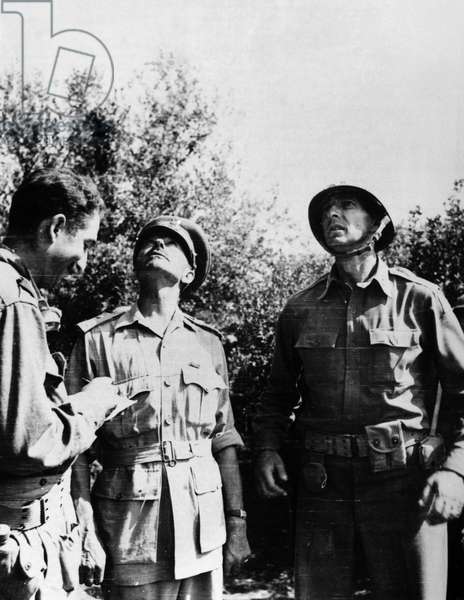























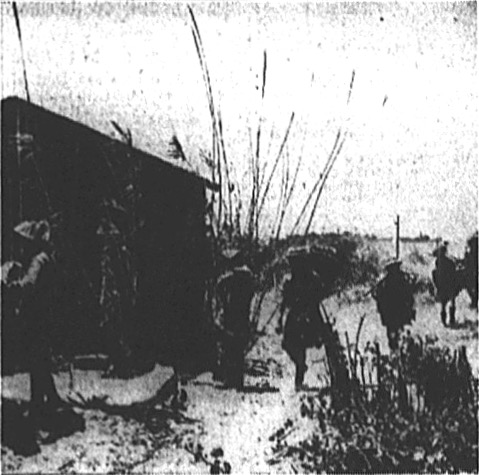





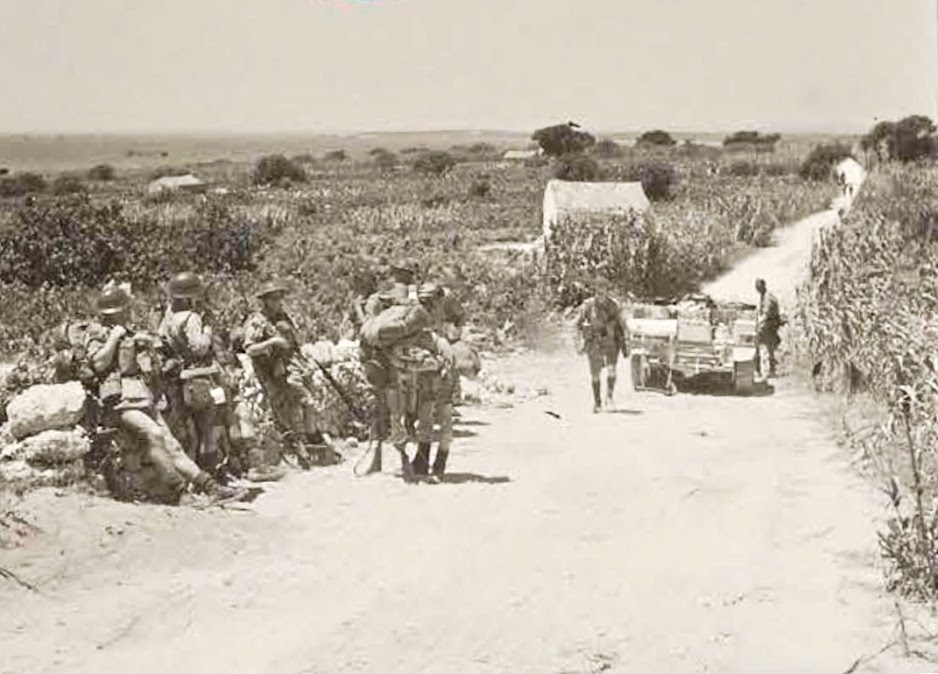

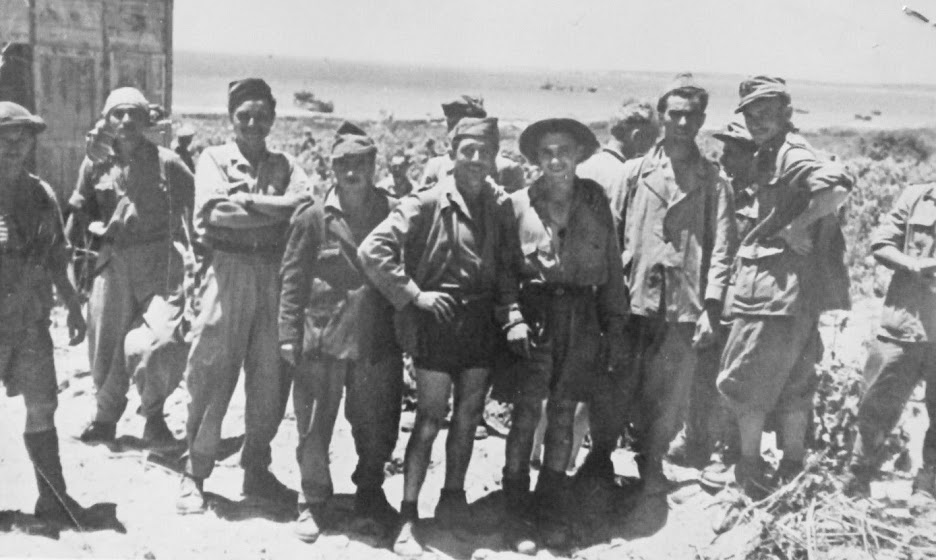









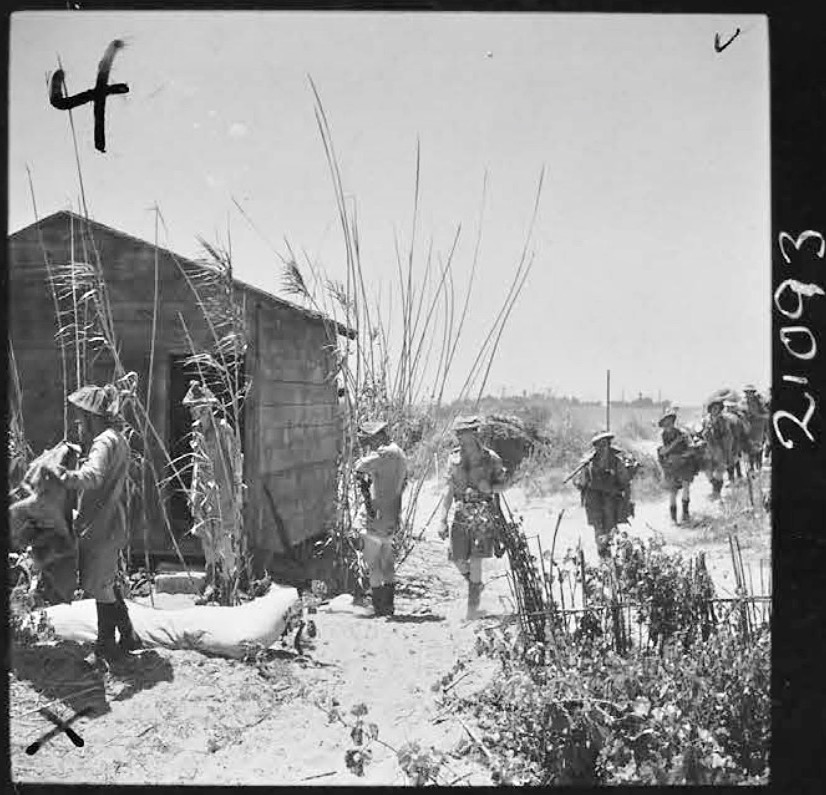

No comments:
Post a Comment